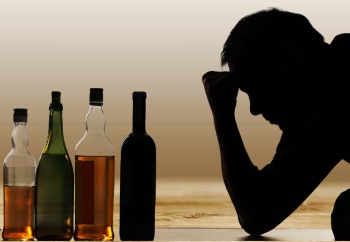Overcoming Alcohol Addiction
Alcoholic addiction is when drinking has got to the stage where you cannot control your intake. You may have strong intentions in the morning to not drink that day, but a few hours later you may have drunk a bottle of wine and opened a second. You will have no idea why you were unable to stop at just one glass. There is help to overcome alcohol addiction, including NHS alcohol support services and other free resources, when you are ready to stop drinking.

Talk to family and friends about your plan to stop drinking to gain their support. You may want to stop trips out that involve drinking or go as the designated driver. Do what makes you comfortable. As your sober life becomes more stable, with your confidence growing and alcohol’s tight grip gone, you will feel comfortable to attend events and have a good time, sober.
Some people find their friendship groups change when they stop drinking. There may be people who do not support your efforts to stop. These are social connections you are advised to drop. Consider the things that you enjoy and perhaps go swimming or to an art class after work to replace the habit of heading straight to the pub.
Keep safe when you stop drinking
If you have been frequently drinking heavily, your body will have become physically dependent on alcohol, which can mean that suddenly stopping can give you a headache or cause you to shake, sweat, feel queasy or physically sick, heighten anxiety and restlessness, give you an upset stomach, make concentration or sleep extremely difficult as well as raise your heart rate and blood pressure.
Alcohol withdrawal symptoms usually start within hours of the last drink and can be at their worst over the next couple of days, though improving within 5 days. However, for some alcoholics withdrawal can be life threatening, so a medically supervised detox with prescribed medication can relieve symptoms and stop complications.
Alcohol addiction treatment
Many people stop drinking without any medical intervention, but it is always a good idea to have a conversation with a professional who can guide you through the options in your own case. Visit your GP or get an appointment at a local clinic that deals with alcohol addiction. Private medical establishments will offer medical support in the first days of sobriety if you are unable to access NHS care.
Residential treatment programmes

Residential treatment takes place at a centre or clinic where intensive therapies happen each day. Residential treatment usually lasts one month with support after discharge as an out-patient for a following three to six months which includes individual and group therapy.
Non-residential, out-patient, treatment programmes take place at hospitals and clinics during daytime hours and can be between four and six hours daily. Attendees are usually breathalysed before the day starts, with those that have had an alcoholic drink barred from the programme until they are honestly willing to try living sober again.
Sober living centres
Sober living centres are usually open to those who have completed residential treatment. These centres are homes where a group of recovering alcoholics and addicts live in supported houses as a half-way house before getting their own place.
The best treatment for you
Stopping drinking is only the first step. Make your recovery journey easier by taking care of yourself. Eat well and get plenty of sleep. Exercise to release endorphins and relieve stress. All these will help prevent mood swings and combat cravings.
Recovery requires a focus on how alcohol has affected your life, to help find new ways of living without it. There are SMART recovery programmes, 12-step recovery programmes and much more available to beat alcohol addiction, so find whatever therapies work for you.
There are recovery support groups in almost every town who will welcome you at regular meetings. If it is difficult to attend meetings because of health issues or caring responsibilities, support is also available online. Make these meetings a priority so that you have the support from people who have shared your experiences and from whom you can learn to live happy and sober.

